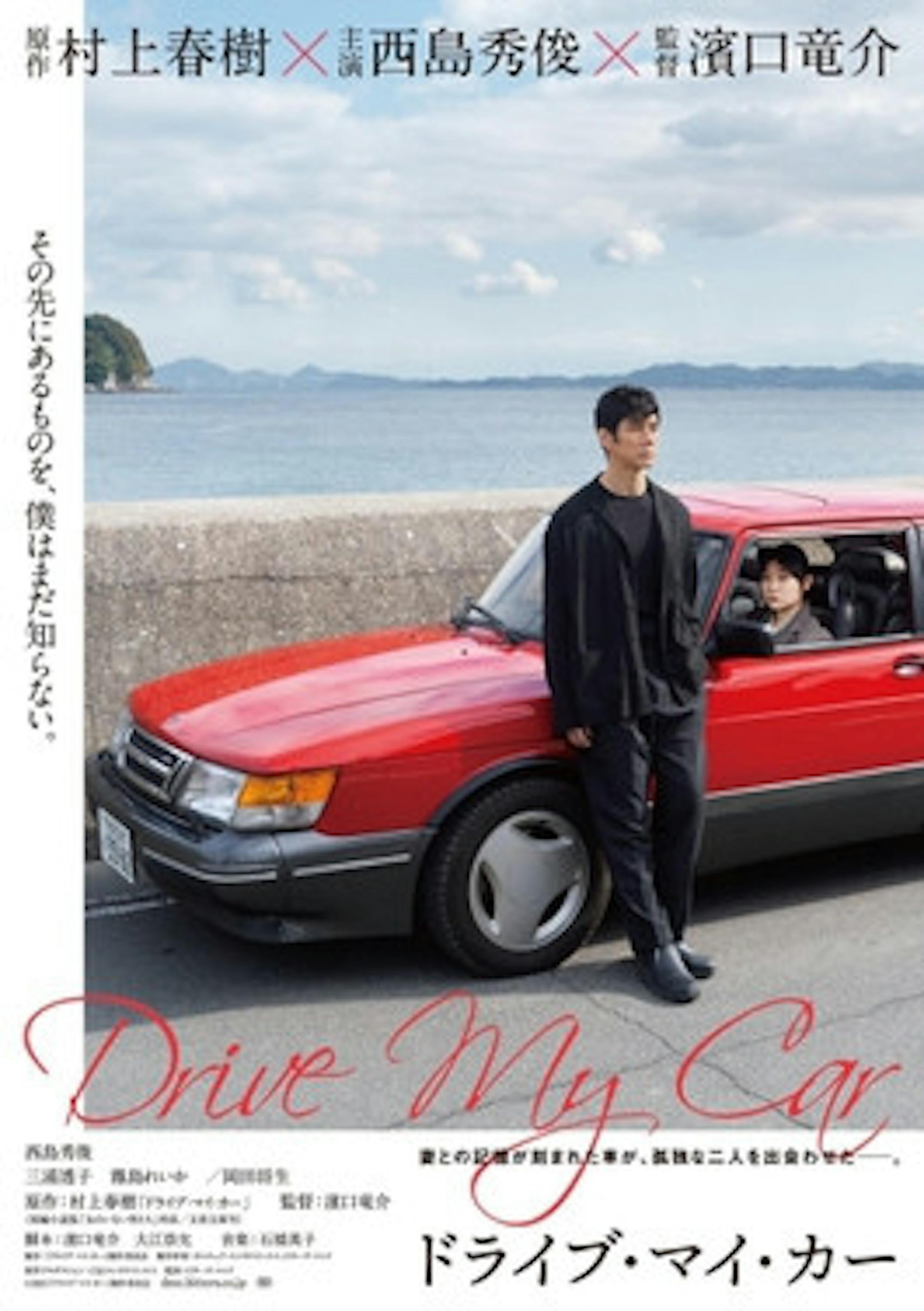It seems impossible that on the cusp of the 94th Academy Awards ceremony, there should only be one Japanese film ever to be nominated for Best Picture. It is a perfect choice then, for that film to be “Drive My Car” (2021).
The film is an emotionally intense three-hour-long meditation on grief based on the Haruki Murakami short story to which it owes its name. It follows Yūsuke Kafuku (Hidetoshi Nishijima) as he, in the wake of a recent tragedy, moves to Hiroshima to produce his adaptation of Anton Pavlovich Chekhov’s “Uncle Vanya” (1898).
For those who enjoy going on contemplative drives, this movie hits hard. When the sanctity of Yūsuke’s bright red Saab 900 is violated by the theater company’s policy, he is required to employ driver Misaki Watari (Tôko Miura), and Yūsuke must deal with the uncomfortable intimacy of a stranger entering his most sacred space. The film features several extended scenes in the car, including one 13-minute confrontation between Yūsuke and his star actor, Kōji Takatsuki (Masaki Okada), that comes uncomfortably close to breaking the fourth wall as the camera slowly finds itself in the position of Yūsuke’s face. What was once a space of personal vulnerability becomes a space of public vulnerability, and Oscar-nominated director Ryûsuke Hamaguchinavigates the subsequent discomfort with intimate care.
For a generally quiet and contemplative film, this direction is never underthought. Hamaguchi’s camera moves gracefully with clear intention behind every shot. Hamaguchi, who also co-wrote the film’s Oscar-nominated adapted screenplay, repeatedly emphasizes the importance of setting. The film’s exterior scenes effectively utilize wide shots that firmly plant the characters in specific locations. One such location is the city of Hiroshima, which is presented as a vehicle for Yūsuke and Misaki to process their grief as the city processes its own. Much of the film focuses on the long-lasting effects of personal catastrophes, so the choice of Hiroshima as a place to work through that trauma is an apt one.
As mentioned above, the film runs for a full three hours. Its narrative moves like thick molasses, each moment denser and richer than the last. With the opening credits beginning just after the 40-minute mark, the film felt closer to a five-hour experience. What a relief it wasn’t forced to be shortened; it earned every minute and felt like a melodramatic epic.
The film’s Oscar nominations come at a time when international cinema is more widely celebrated in Hollywood critics’ circles, demonstrated by the historic crowning of “Parasite” (2019) as Best Picture in 2020 — the first non-English film to do so. This year’s nominations saw a noticeable uptick in international films, with “Drive My Car” locking down nods for Best Director, Adapted Screenplay and Best Picture alongside its place in the international feature category. Norwegian film and fellow Cannes award winner“The Worst Person in The World” (2022) also received a nomination for Best Original Screenplay. Yet another Cannes darling, the Danish animated docudrama “Flee” (2021), received a historic trio of nominations in the international, animated and documentary feature categories. After “Parasite” (2019) won big just two years ago, it’s exciting to see non-English films finally get their overdue recognition. With the expansion of international feature nominees into other categories, perhaps the academy will soon find the distinction obsolete and redundant.
The film’s recent release on HBO Max is a double-edged sword. On the one hand, the platform grants access to those who were unable to see it in theaters. On the other, there’s something a bit queasy about the idea of watching it on a greasy laptop screen while a phone buzzes with notifications nearby. The theater exists to let people devote all of their attention to the screen, without checking the time, texting or doing anything other than being fully immersed in the cinematic experience. For “Drive My Car,” that experience is essential. As the film wraps up its theatrical run, with the last Kendall Square showtime on March 10, Tufts viewers should make every effort to silence the outside world for just three hours and experience the film as wholly as possible.
In all, “Drive My Car” is nothing short of a masterpiece. Hamaguchi’s direction is precise, and his writing is moving. At its core, it is a story about the tragic collision of humanity and disaster, and it's quiet melancholy makes for one of the most compelling cinematic experiences of the year.






